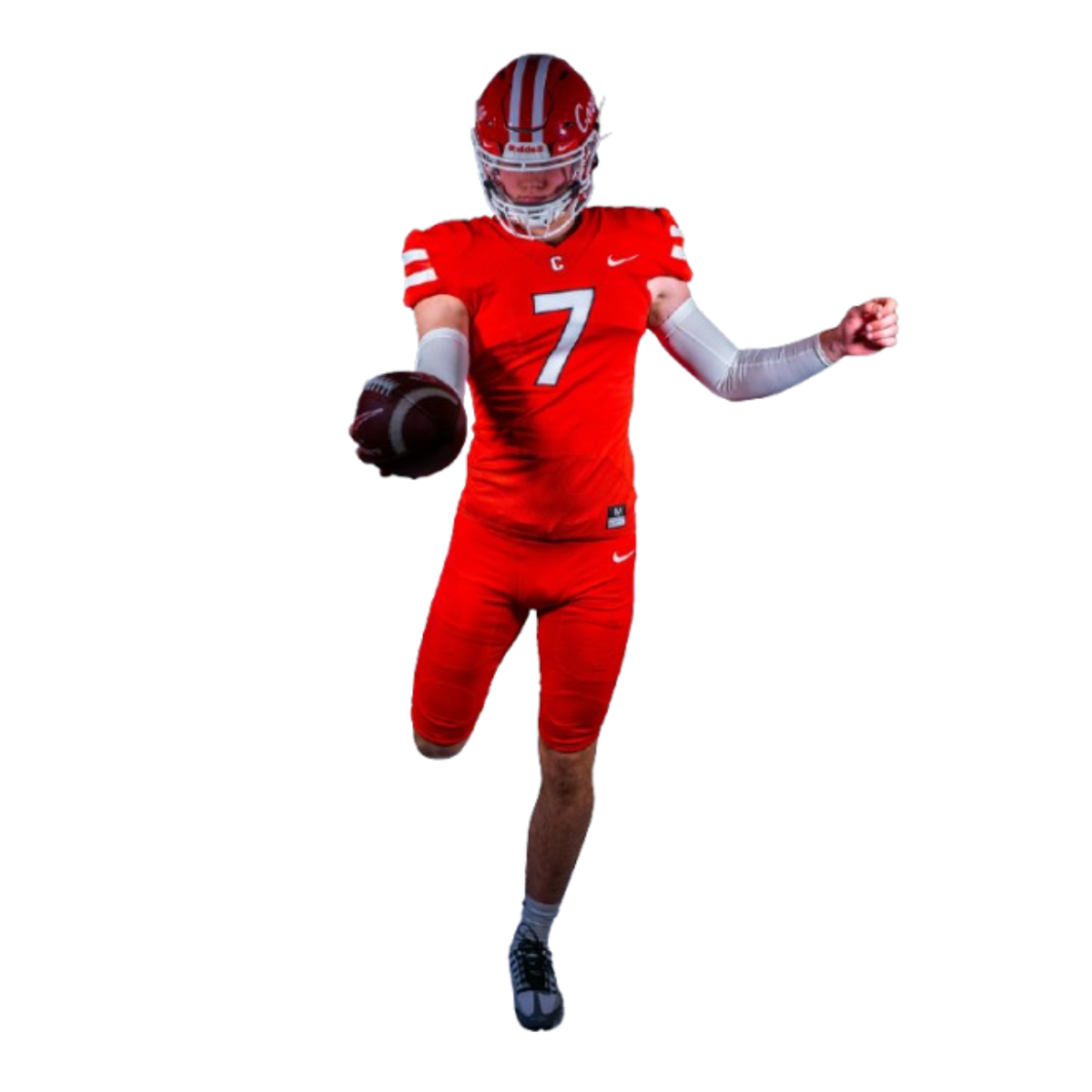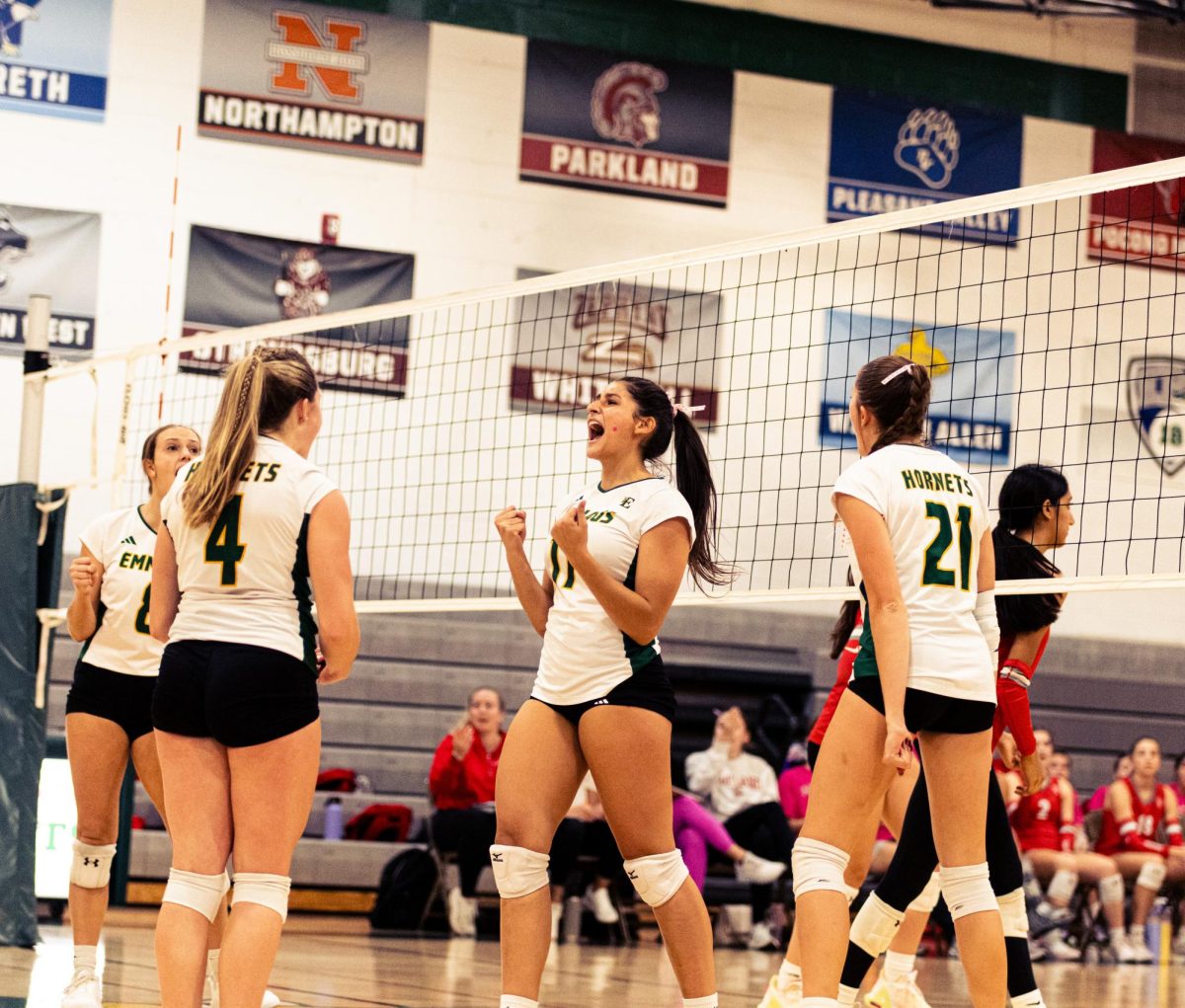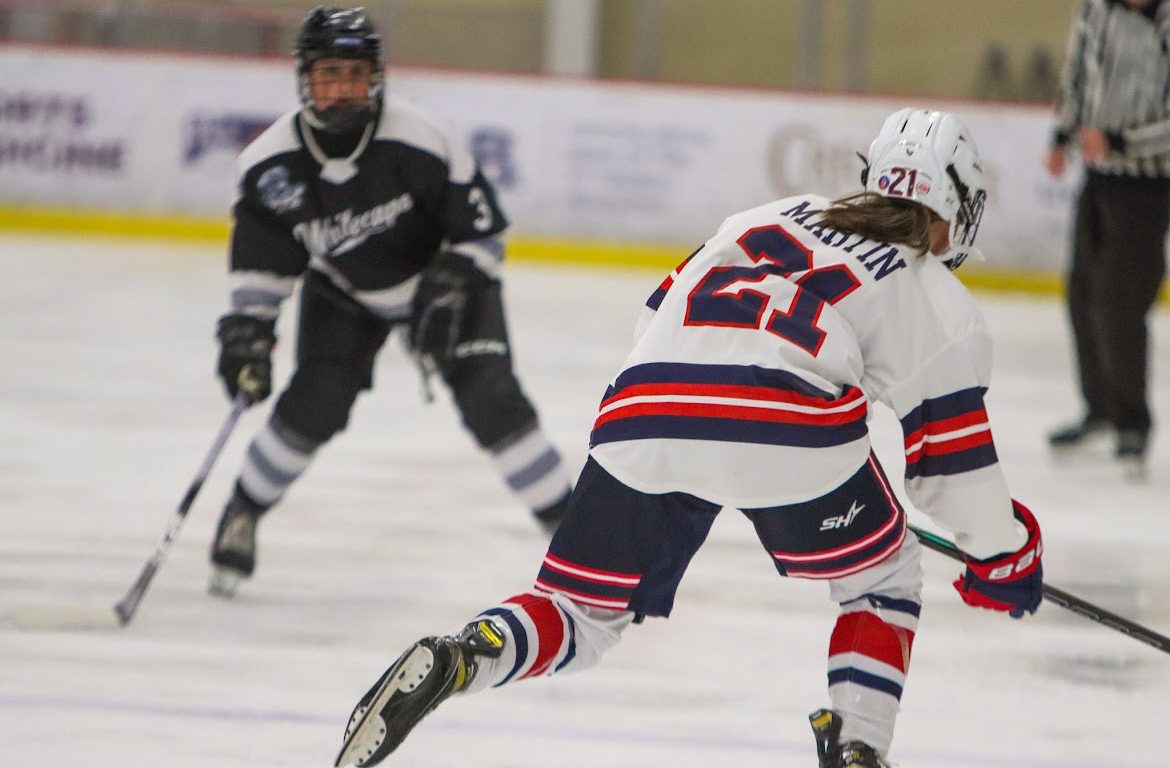“You can’t be afraid of getting a no. You really don’t lose anything by reaching out. So you’ve just got to give your best shot,” senior football kicker and punter William Buck said.
Fearing rejection is a shared commonality among many teenagers. This shared apprehension becomes especially difficult, yet important during this time period of their lives. The teenage years are marked by freedom to live and to choose, but also with the impending doom of what is to come next, especially for high school athletes. Many people choose to join the workforce or pursue a higher education, but oftentimes the fear of putting yourself out there hinders them from falling headfirst towards their true desires when deciding whether to continue their respective sport or not. Those who choose to conquer this challenge and chase their dreams tend to find exorbitant success when looking towards the future of their athletic career.
For Buck, recognizing his dreams and actively engaging in them has defined his life and offered him the opportunity to play the sport he loves at a higher level. Buck started his sports career as a soccer player. It was the only sport he had known growing up until his transition from middle to high school.
“I played soccer my whole life, and then going into my eighth grade year, one of the middle school coaches told me I should sign up to play football. And I decided to try it out. Ever since then, I haven’t looked back,” Buck said.
This feeling of complete focus and love for his sport has helped Buck as he began looking at how football would play a role in his future.
“The first time I ever stepped out onto the field for a game, I loved it so much, and from that moment on, I kind of just assumed that I was going to play in college,” Buck said.
Buck recently verbally committed to play punter on Cornell University’s Ivy League Division I football team. He found that one of the biggest factors of his recruitment was the role social media played for athletes looking at continuing their sport collegiately.
“Coaches started reaching out to me on Twitter. It was a pretty crazy process. A lot of people say this is really stressful, but I would say that it’s only stressful if you allow it to be,” Buck said.
His recruitment process was built on his foundational values of tenacity, hard work, and a balanced mindset. This does not mean that it did not come without inherent challenges though.
“My biggest challenge is not getting too high or too low, it’s such an important thing. There’s been a lot of highs and lows to my career, but you just got to keep your mind in the right spot,” Buck said.
Many athletes find that recruitment can be tedious and stressful but find that their result is rewarding. Junior field hockey player Morgann Orobono has found this same result throughout her recruitment process.
“I think just focus on staying positive throughout the whole thing because it’s a bunch of mind games that you play with coaches. You don’t know if they like you or what’s going on in their head, or even if you’ll play if you go there. So I just like staying positive,” Orobono said.
Orobono announced her verbal commitment to Division I Monmouth University this fall, but the process in itself did not happen overnight and took years of hard work.
“I do a bunch of tournaments that coaches go to and I send emails too. But also the coaches at WC Eagles (her club field hockey team) have really helped a lot. If you want to go somewhere, they’ll reach out,” Orobono said.
The process of reaching out to coaches and playing in showcases for coaches to evaluate you is a common recruitment tactic in the world of field hockey. Junior field hockey goalie Aiko Price used similar methods when going through her recruitment process and eventually committing to Division I Northeastern University’s field hockey team.
“I think it was around my freshman year I started sending out emails and going to clinics trying to get exposure. Freshman year I was lightly doing it, and sophomore year was whenever I was seriously sending them out,” Price said.
Price began to build a network of connections with many schools, allowing her to choose the best fit. Different athletes value different aspects of colleges which aid their decision along with just the athletic program. For many, including Price, academics is a key factor contributing to their athletic commitment.
“You’re going to college for your academics, and I want to be an architect. Going into an accredited architecture program is so important to me. It was a school where it was possible to do a division one sport while also doing an academically challenging major,” Price said.
There are many stressors included in the recruitment and commitment process. An underlying these factors is also the fear of the unknown. But through time as the fog clears and the future becomes more visible, athletes tend to look back, value the process, and see the light of what collegiate athletics can become for them.







